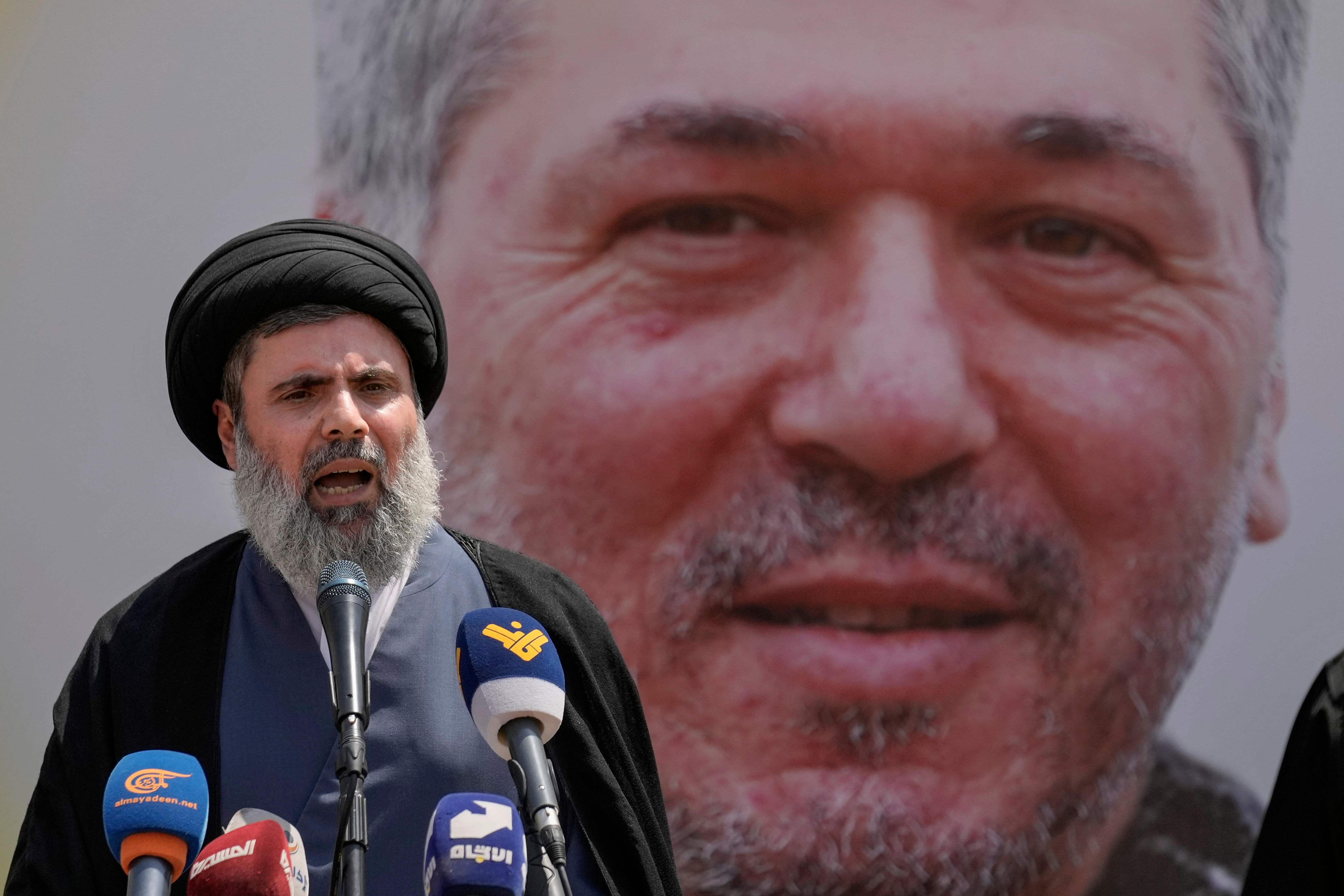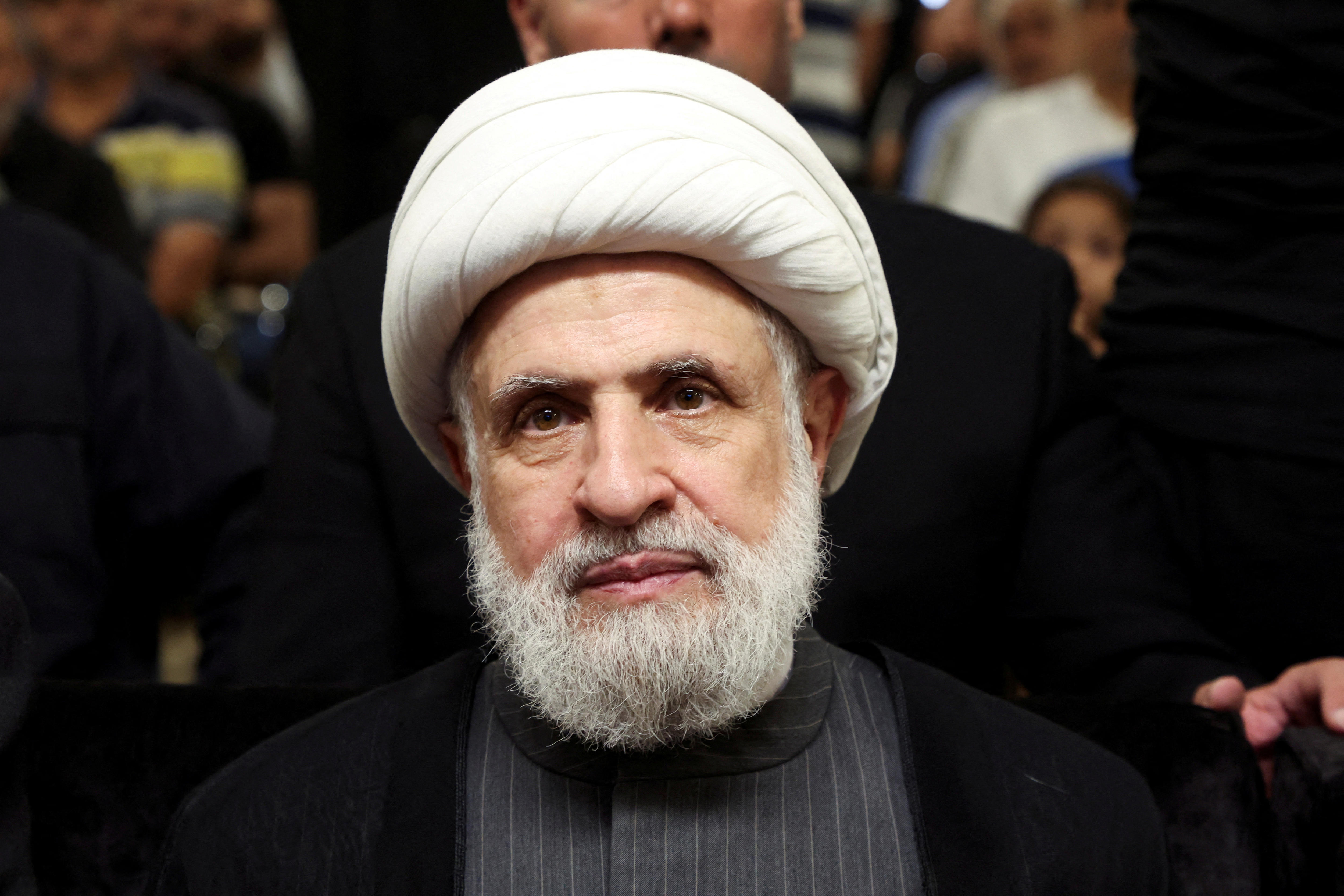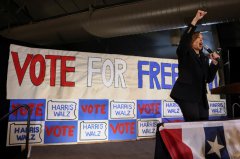Benjamin Netanyahu says Israel has killed late Hezbollah leader Hassan Nasrallah's successors

Hashem Safieddine was tipped to succeed Hassan Nasrallah as Hezbollah's next leader, after Nasrallah's assassination by Israel last month.
In short:
Fighting between the Israeli military and Hezbollah is continuing to intensify after the armed group's deputy chief Naim Qassem said it would not be the first to yield in the war.
Israeli PM Benjamin Netanyahu said on Tuesday IDF air strikes had killed two successors to Hassan Nasrallah.
Hezbollah's deputy chief says the group's military capabilities remain intact.
The Israeli Prime Minister says Israeli air strikes have killed two successors to Hezbollah's slain leader, Hassan Nasrallah.
Speaking in a video released by his office hours after the deputy leader of Hezbollah left the door open to a negotiated ceasefire on Tuesday, Benjamin Netanyahu also said Israel had expanded its ground offensive against Iran-backed Hezbollah by deploying a fourth army division to south Lebanon.
"We've degraded Hezbollah's capabilities. We took out thousands of terrorists, including [Hassan] Nasrallah himself and Nasrallah's replacement, and the replacement of the replacement," he said, without naming the latter two.
Israeli Defence Minister Yoav Gallant said Hashem Safieddine, the man expected to succeed Nasrallah, had probably been "eliminated".
Later, Israeli military spokesman Daniel Hagari said Israel knew Safieddine was in Hezbollah's intelligence headquarters when fighter jets bombed it last week and that his status was "being checked and when we know, we will inform the public".
Safieddine has not been heard from publicly since that air strike, part of an escalating Israeli offensive after a year of border clashes with Hezbollah.
IDF strike on Syria kills seven
An Israeli air strike targeted a residential building in the Mezzah suburb west of the Syrian capital Damascus on Tuesday, killing seven civilians and injuring 11 others, Syrian state media reported.
The seven civilians included women and children, state media reported, citing a military source, adding the strike also caused "grave" material damage to private properties in surrounding areas.
According to the source, the air strike comprised three missiles coming from the direction of Golan Heights.
State media earlier reported that Syria's air defences had intercepted "hostile" targets in the vicinity of Damascus.
Israel has been carrying out strikes against Iran-linked targets in Syria for years but has ramped up such raids since last year's October 7 attack by Palestinian group Hamas on Israeli territory that sparked the Gaza war.
More IDF ground troops enter southern Lebanon
The Israeli military said it sent its 146th Division into south Lebanon, the first reserve division to be deployed over the border, and was extending ground operations against Hezbollah from south-east Lebanon into its south-west.
A military spokesperson declined to say how many troops were in Lebanon at one time. But the military previously announced three other army divisions were operating there, meaning thousands of soldiers are likely on Lebanese soil.
The Israeli military announced on October 1 that ground forces had entered Lebanon, initially with commando units that were then followed by regular armoured units and infantry units.
Overnight, Israel again bombed Beirut's southern suburbs where Hezbollah is headquartered, It said it killed a figure responsible for budgeting and logistics, Suhail Hussein Husseini, the latest in a string of assassinations of some of Hezbollah's top officials.
Acting Hezbollah leader backs attempts to secure truce

Hezbollah deputy leader Sheikh Naim Qassem said the group will continue to fight despite the loss of their leader Hassan Nasrallah.
Hezbollah deputy chief Naim Qassem said the militant group supported Lebanese efforts for a ceasefire with Israel, after two weeks of heavy Israeli strikes.
Qassem's remarks were shown on television after Israeli forces began ground operations in the south-west of Lebanon, expanding incursions into a new zone.
He said Hezbollah supported attempts by Speaker of Parliament Nabih Berri, a Hezbollah ally, to secure a halt to fighting, which has escalated in recent weeks with the Israeli ground incursions and the killing of top Hezbollah leaders.
"We support the political activity being led by Berri under the title of a ceasefire," Qassem said in a 30-minute televised address, on Tuesday, local time.
It was not clear whether this signalled any change in stance after a year in which it has said it is fighting in support of the Palestinians during the Israel-Hamas war in Gaza.
Qassem said Hezbollah would not be the first to yield in the war and that its capabilities were still intact. Israel has yet to advance after the ground clashes that broke out in south Lebanon a week ago, he added.
"In any case, after the issue of a ceasefire takes shape, and once diplomacy can achieve it, all of the other details can be discussed and decisions can be taken," Qassem said.
"If the enemy [Israel] continues its war, then the battlefield will decide."
The regional tensions triggered over a year ago by Palestinian armed group Hamas's terror attack on southern Israel have spiralled to a series of Israeli operations by land and air over Lebanon and direct attacks by Iran onto Israeli military installations.
Warning from Iran
Iran warned Israel on Tuesday against any attacks on the Islamic Republic, a week after Tehran fired a barrage of missiles at Israel.
Any attack on Iran's infrastructure will be met with retaliation, Iranian Foreign Minister Abbas Araqchi said.
Mr Araqchi will visit Saudi Arabia and other countries in the Middle East starting on Tuesday to discuss regional issues and work on stopping Israel's assaults on Gaza and Lebanon.
Gulf Arab states have sought to reassure Tehran of their neutrality in the Iran-Israel conflict, sources told Reuters last week.
"Our dialogue continues in regards to the developments in the region to prevent the shameless crimes of the Zionist regime in Lebanon in continuation of the crimes in Gaza," Mr Araqchi said in a video carried by state media.
"Starting today I'll start a trip to the region, to Riyadh and other capitals in the region and we will strive to have a collective movement from the countries of the region… to stop the brutal attacks in Lebanon."
Israel piles pressure on Hezbollah
In Lebanon, Israeli forces have piled more pressure on Hezbollah. The Israeli military said it was conducting "limited, localised, targeted operations" in Lebanon's south-west after announcing such operations for the south-east border area.
A World Food Programme official voiced concern about Lebanon's food supply, saying thousands of hectares of farmland across the country's south has burned or been abandoned.
"Agriculture-wise, food production-wise, [there is] extraordinary concern for Lebanon's ability to continue to feed itself," Matthew Hollingworth, WFP country director in Lebanon, told a Geneva press briefing, adding that harvests will not occur and produce is rotting in fields.
World Health Organization official Ian Clarke in Beirut told the same briefing that there was a much higher risk of disease outbreaks among Lebanon's displaced population.
Israel's military struck Beirut's southern suburbs overnight again and said it killed a senior Hezbollah figure responsible for the group's budgeting and logistics.
If confirmed, the death of Suhail Hussein Husseini would be the latest in a string of Israeli assassinations of leaders and commanders of Hezbollah and its ally Hamas.
In the biggest blow to Hezbollah in decades, Israel killed its leader Hassan Nasrallah with an air strike in Beirut's southern suburbs late last month.
Many Israelis have regained confidence in their long-vaunted military and intelligence after deadly blows in recent weeks to the command structure of Hezbollah.
The situation in Lebanon is getting worse by the day, the European Union's foreign policy chief, Josep Borrell, told the European Parliament, calling for a ceasefire.
Some 20 per cent of the Lebanese population had been forced to move, he said.
ABC/wires
By:https://www.abc.net.au/news/2024-10-09/hezbollah-deputy-chief-says-he-supports-efforts-for-a-ceasefire/104447324(责任编辑:admin)
下一篇:Apollo Quiboloy of the Kingdom of Jesus Christ church registers for Philippine senate elections from behind bars
 Socceroos rescue a point
Socceroos rescue a point  Wallabies thrash Wales 52
Wallabies thrash Wales 52 Jake Paul beats Mike Tyso
Jake Paul beats Mike Tyso Live updates: England vs
Live updates: England vs  US election 2024: Donald
US election 2024: Donald  US election live: Kamala
US election live: Kamala
- ·North Korea's latest weapon agains
- ·Hezbollah says Israel 'cannot impo
- ·Inside the rise of US oligarchs and how
- ·Thailand's worst suspected serial
- ·Tabi shoes are turning heads from Holly
- ·FBI arrests Florida man planning attack
- ·Illegal immigrant gets life sentence fo
- ·Bibles, water, watches and sneakers: Do
- ·North Korea's latest weapon against
- ·Hezbollah says Israel 'cannot impose
- ·Inside the rise of US oligarchs and how i
- ·Thailand's worst suspected serial ki
- ·Tabi shoes are turning heads from Hollywo
- ·FBI arrests Florida man planning attack o
- ·Illegal immigrant gets life sentence for
- ·Bibles, water, watches and sneakers: Dona
- ·US to give Kyiv anti-personnel landmines
- ·An arrest warrant for Benjamin Netanyahu
- ·One of Vietnam's high-profile politi
- ·Shanghai Walmart Attack: A Man Randomly S
- ·South Korean police officers jailed over
- ·Cambodia publicly shames maid deported af
- ·North Korea to use all forces including n
- ·Philippines condemns China attack of Viet
- ·US adds 2 more Chinese companies to Uyghu
- ·North Korean defector steals South Korean
- ·Malaysia deports Cambodian worker for cal
- ·Rebels battle for Myanmar junta’s weste

